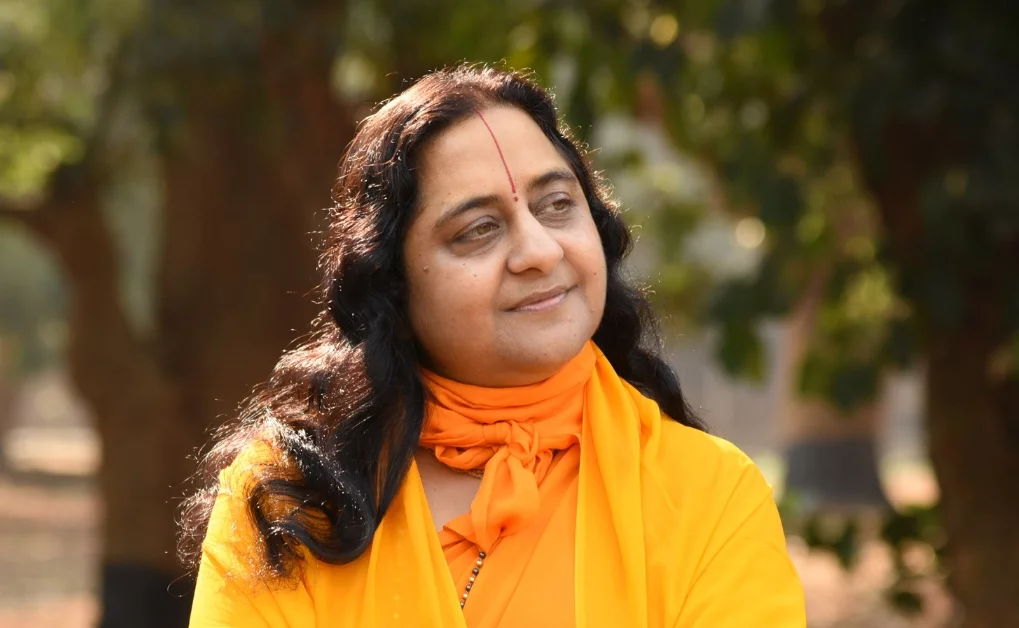What Is the True Purpose of Life? 7 Timeless Truths to Help You Find It
- H.H. Raseshwari Devi Ji

- Sep 4, 2025
- 5 min read
Updated: Sep 6, 2025

Introduction: A Question Every Heart Whispers
What is the true purpose of life?
This single question echoes across every era, continent, and culture. Whether you're standing amidst the clamor of a corporate boardroom or sitting silently under a starlit sky, there comes a moment when your heart seeks more than just goals, achievements, and survival. It seeks meaning.
But in a world driven by speed, ambition, and endless distractions, how do we slow down enough to listen to this inner call? As a spiritual guide, I have seen seekers from every walk of life wrestle with this question. And while answers may vary in form, the essence remains the same.
Let us walk together through ancient wisdom and modern reflection, not to impose a purpose, but to uncover the one that already exists within you.
The Misconception: Success ≠ Purpose
In today’s performance-oriented society, many confuse success with purpose. Career growth, fame, or wealth may offer temporary satisfaction, but purpose is what gives life its depth, not just its direction.
Statistically, studies from the Greater Good Science Center at UC Berkeley show that people who report a strong sense of life purpose experience 15% lower mortality risk. Purpose isn't just spiritual — it directly impacts our physical and mental well-being.
Yet, what is often forgotten is this: Purpose is not something you invent; it’s something you uncover.
The Spiritual Perspective: You Are Not the Body Alone
From the Vedic point of view, human life is not a random accident. Among 84 lakh species, scriptures tell us that only human birth grants the power of conscious self-inquiry — “ko'ham?” — Who am I?
The Upanishads call this human life a rare boat — a vessel capable of crossing the ocean of material existence and reaching the shore of divine realization.
"तमेवैकं जानथ आत्मानं अन्याः वाचो विमुञ्चथ"
—Mundaka Upanishad
“Know That One alone. Let all other words fall away.”
The true purpose, then, is to awaken to our divine nature and re-establish our loving relationship with the Supreme — to know the Self and to know God.
7 Truths to Understand the Purpose of Life
(With Reflections from the Upanishads)
Life Is Not Meant for Just Enjoyment, but for Enlightenment
True joy is not sensory—it is soul-deep. The pleasures of the world, however tempting, are fleeting and dependent on external triggers. But the bliss of the soul is independent, ever-fresh, and divine. Life’s true purpose is to discover that unshakable inner joy—ānanda—that the soul has always been yearning for.
Upanishadic Insight — Taittiriya Upanishad (2.7.1):
"ānandād hy eva khalv imāni bhūtāni jāyante..."
"From Bliss all beings are born; by Bliss they live and grow; and into Bliss they return."
Your Longings Are Clues
That quiet emptiness inside is not a weakness—it’s a divine whisper. Even when we achieve our dreams, something still feels missing. That sense of incompletion is sacred; it’s the soul’s memory of its Source. The soul does not hunger for wealth or fame—it hungers for oneness.
Upanishadic Insight — Chāndogya Upanishad (6.14.2):
"yo vai bhūmā tat sukham, nālpe sukham asti"
"In the Infinite alone is there joy; there is no joy in the finite."
Pain Has a Purpose Too
Suffering often awakens the sleeping soul. Pain, though difficult, is a teacher. It peels away the ego’s illusions and pushes us to seek something higher. In those moments of vulnerability, the Divine gently turns us inward—toward healing, growth, and surrender.
Upanishadic Insight — Kaṭha Upanishad (1.2.18):
"parāñci khāni vyatṛṇat svayambhūs tasmāt parāṅ paśyati nāntarātman"
"The Self-existent created the senses outward-turning; hence one sees the outer world and not the inner Self. But a wise one, desiring immortality, turns his gaze within."
Serve to Find Yourself
We don’t find purpose by chasing it. We find it by offering ourselves. When we love selflessly, when we serve without seeking reward, we glimpse our real nature. Life becomes meaningful not through accumulation, but through contribution.
Upanishadic Insight — Īśāvāsya Upanishad (1):
"tena tyaktena bhuñjīthāḥ"
"By renunciation alone, enjoy all things."
Relationships Are Mirrors
Every person in your life reflects something within you. Some uplift you, some challenge you, others teach through contrast. But each interaction is a step toward self-realization, if we choose to see it that way. The soul evolves not in isolation, but in relationship.
Upanishadic Insight — Bṛhadāraṇyaka Upanishad (1.4.6):
"sa vā eṣa puruṣo jāyate... na preṣṭhaḥ preyo bhavati"
"The Self appears as many for the sake of relationship. The beloved is not dear for their own sake, but because the Self is seen in them."
Detachment Isn’t Indifference
Detachment doesn’t mean withdrawing from life—it means engaging without clinging. It’s easy to mistake detachment for coldness. But real detachment is active and loving. It’s the art of doing one’s duty while being inwardly free. True purpose arises when we live in the world with a spirit of surrender.
Upanishadic Insight — Kaṭha Upanishad (2.3.14):
"sarve vedā yat padam āmananti..."
"That goal which all the Vedas declare, which all austerities aim at, and which men desire when they lead a life of continence—is Om."
Devotion is the Ultimate Fulfillment
When the soul pours itself into the Beloved, life becomes poetry. Bhakti—devotion—is not an escape from purpose; it is the flowering of it. In devotion, the heart finds rest, the mind finds focus, and every action becomes sacred. It is not a path among many—it is the final embrace.
📖 Upanishadic Insight — Śvetāśvatara Upanishad (6.23):
"yasya deve parā bhaktir yathā deve tathā gurau..."
"To the one who has supreme devotion for God and equal devotion for the Guru, the truths of the Upanishads are revealed."
Conclusion: A Timeless Whisper from the Upanishads
You were not born to merely exist. You are here to remember — who you are, why you’re here, and Who truly belongs to you. Let life not be a restless pursuit of ‘more,’ but a peaceful return to the truth that you are eternal, divine, and deeply loved.
"यत्र तु द्वैतम् इव भवति, तदितर इतरेण जिघ्रति..."
—Brihadaranyaka Upanishad
“Where there is duality, one sees the other. But when all is known as One, who is there to see?”
May your path be filled with clarity, devotion, and sacred stillness.
With deep reverence for the seeker within you,
Radhe Radhe,
—Raseshwari Devi Ji
Further Reading:
(Philosophical View: Self-awareness, Emotions, and Moral Reasoning)
“मानव जीवन की नैतिकता और उद्देश्य” (Ethics and Purpose of Human Life)
“मानव जीवन में महत्वकांक्षा का स्थान” (The Role of Ambition in Human Life)
“जीवन का सही उद्देश्य क्या है?” (What Is the True Purpose of Life?)
“स्वार्थ बनाम परमार्थ: एक आत्ममंथन” (Selfishness vs. Selflessness: A Self-Reflection)
“मानव जीवन में विवेक और निर्णय की भूमिका” (Role of Discrimination and Decision-making in Life)
Frequently Asked Questions (FAQ)
Q1: Is purpose the same for everyone?
No. The ultimate purpose — realizing our divine identity and loving God — is common. But the expression of that purpose (through seva, teaching, art, etc.) varies by nature (swabhava) and karma.
Q2: Can I find purpose in my job or family?
Yes, if seen as a platform for inner evolution. A job done with honesty and service becomes yoga. A family nurtured with love becomes a temple.
Q3: What if I feel lost or directionless?
That’s the best starting point. Confusion humbles the ego and opens the seeker’s heart. Begin with introspection, satsang, and surrender to the divine will.
Q4: Do I have to renounce everything to live with purpose?
No. Renunciation is internal. What matters is detachment, not disengagement. Live in the world, but not for the world.
Q5: How can I stay aligned with my purpose daily?
Through daily sadhana (spiritual practice), association with saintly people, and introspective journaling. Ask yourself each night: “Was I true to my higher self today?”





















Comments